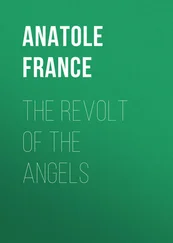Yukio Mishima - The Decay Of The Angel
Здесь есть возможность читать онлайн «Yukio Mishima - The Decay Of The Angel» весь текст электронной книги совершенно бесплатно (целиком полную версию без сокращений). В некоторых случаях можно слушать аудио, скачать через торрент в формате fb2 и присутствует краткое содержание. Год выпуска: 2010, Издательство: CCV Digital, Жанр: Старинная литература, на английском языке. Описание произведения, (предисловие) а так же отзывы посетителей доступны на портале библиотеки ЛибКат.
- Название:The Decay Of The Angel
- Автор:
- Издательство:CCV Digital
- Жанр:
- Год:2010
- ISBN:нет данных
- Рейтинг книги:5 / 5. Голосов: 1
-
Избранное:Добавить в избранное
- Отзывы:
-
Ваша оценка:
- 100
- 1
- 2
- 3
- 4
- 5
The Decay Of The Angel: краткое содержание, описание и аннотация
Предлагаем к чтению аннотацию, описание, краткое содержание или предисловие (зависит от того, что написал сам автор книги «The Decay Of The Angel»). Если вы не нашли необходимую информацию о книге — напишите в комментариях, мы постараемся отыскать её.
The Decay Of The Angel — читать онлайн бесплатно полную книгу (весь текст) целиком
Ниже представлен текст книги, разбитый по страницам. Система сохранения места последней прочитанной страницы, позволяет с удобством читать онлайн бесплатно книгу «The Decay Of The Angel», без необходимости каждый раз заново искать на чём Вы остановились. Поставьте закладку, и сможете в любой момент перейти на страницу, на которой закончили чтение.
Интервал:
Закладка:
Honda remembered with extraordinary freshness the five marks of decay in the Kitano Scroll, a national treasure he had seen long before in the Kitano Shrine. He had a photographic copy which called up something, a song of horrid foreboding, perhaps, to which he had earlier been deaf.
In a garden blocked off by the beautiful foundations of a Chinese pavilion, crowds of angels are plucking on zithers, beating on drums. But there is no suggestion of vitality, the music has fallen to the dull buzz of a fly on a summer afternoon. Pluck though they may, beat though they may, the strings and skins are slack and tired and decayed. There are flowers in the forward parts of the garden, and among them a grieving cherub presses its sleeves to its eyes.
Death has come too suddenly. Incredulity is written on beautiful, otherwise inexpressive white angel faces.
Within the pavilion are angels in postures of disarray. Some seek ineffectively to cut graceful arcs with their sleeves, some are twisting and writhing. They stretch their hands languorously over finite spaces but cannot touch, their robes are senselessly dirty, filth pours from their bodies.
What is happening? The five signs have come. The angels are as princesses with no escape, caught by the plague in a close, tropical garden.
The flowers in their hair are limp, their inner spaces are suddenly bloated with water up to the throat. The gathering of soft, graceful figures has at some point been pervaded by a transparent decay, and in the very air they breathe there is already the smell of death.
These sentient beings who by the mere fact of their existence lured men into realms of beauty and fantasy must now look on helpless as, in an instant, their spell is stripped away like flaking gold leaf and swept up in the evening breeze. The classically elegant garden is an incline. The gold dust of all-powerful beauty and pleasure drifts down. Absolute freedom soaring in emptiness is torn away like a rending of flesh. The shadows gather. The light dies. Soft power drips and drips from the beautiful fingers. The fire flickers in the depths of flesh, the spirit is departing.
The brightly checkered floor of the pavilion, the vermilion balustrades, have faded not at all. Relics of grandeur, they will be there when the angels are gone.
Beneath shining hair beautiful nostrils are turned upward. The angels seem to be catching the first fore-scent of decay. Petals twisting beyond clouds, azure decay coloring the sky, all pleasures of sight and of spirit, all the joyous vastness of the universe, gone.
“Good, good.” Keiko sounded a full stop. “You are so well informed.”
Nodding vigorously, Keiko touched a fashionable bottle of Estée Lauder to her ears. She had on pantaloons with a serpentine pattern and a blouse of the same material, a chamois belt reversed at the hips, and a black cordovan sombrero of Spanish make.
Honda had been somewhat startled by the ensemble when he had first caught sight of her at Tokyo Station, but he refrained from commenting upon her chic.
Five or six minutes more and they would be in Shizuoka. He thought of that last sign, a loss of awareness of place. He who had had no such awareness to begin with lived on. For he was no angel.
Vacantly, Honda remembered a thought he had had in the cab that had brought him to the station. He had asked the driver to hurry, and they had taken the expressway from West Kanda. An early-summer drizzle had been falling, he could not have said for how long. They made their way through the rows of banks and brokerages at fifty miles an hour. Huge, solid, the buildings spread great wings of steel and glass. Honda said to himself: “The moment I die they will all go.” The thought came to him as a happy one, a sort of revenge. It would be no trouble at all, tearing this world up by the roots and returning it to the void. All he had to do was die. He took a certain minor pride in the thought that an old man who would be forgotten still had in death this incomparably destructive weapon. For him the five signs of decay held no fear.
9
 THERE WAS one matter weighing on Honda’s mind as he escorted Keiko to the pine grove at Mio. He feared ruining her good spirits by showing her the utter vulgarity to which this most beautiful of Japanese scenic spots had been reduced.
THERE WAS one matter weighing on Honda’s mind as he escorted Keiko to the pine grove at Mio. He feared ruining her good spirits by showing her the utter vulgarity to which this most beautiful of Japanese scenic spots had been reduced.
It was a rainy weekday, but the huge parking lot was jammed with automobiles, and the dirty cellophane in the souvenir shops caught an ashen sky. They did not seem to bother Keiko in the slightest.
“Beautiful. Perfectly lovely. Smell the fresh air and the salt. The sea is so near.”
As a matter of fact the air was strangled with gasoline fumes and the pines were on the point of asphyxiation. Honda felt better. He had visited the place some days before, and he had known what Keiko would see.
Benares was sacred filth. Filth itself was sacred. That was India.
But in Japan, beauty, tradition, poetry, had none of them been touched by the soiled hand of sanctity. Those who touched them and in the end strangled them were quite devoid of sanctity. They all had the same hands, vigorously scoured with soap.
Even at the pine grove of Mio, angels in the empty skull of poetry answered to the unspeakable demands of men, and were forced into myriads and myriads of twists and turns, like circus performers. The cloudy skies were traced as if with a mesh of silver high-tension wires by their dances. In dreams men would meet with only the marks of the decay of angels.
It was past three. “The Pine Grove of Mio. Nihondaira Prefectural Park.” The rough-scaled bark of the tree was enshrouded in the green of moss. Above a gentle flight of stone stairs, the pines sent rude bolts of lightning across the sky. The blossoms, veils of green smoke that even the branches of strangling pines will send forth, shut off a lifeless sea.
“The sea!” said Keiko joyously.
Honda did not trust the joy. There was a little of her party manner in it, of flattery for the villa at which she was a guest. Yet exaggeration can spawn pleasure in something that is nothing at all. At least the two of them were not lonely.
Outside a pair of shops, their cantilever shelves bulging with red Coca-Cola cartons and souvenirs, stood a pair of photographer’s dummies with apertures for two faces: Jirōchō, the boss of Shimizu Harbor, in a pale grove of pines, and Ochō, his lady friend. Jirōchō’s name was on the triangle of the umbrella he cradled in his arm. He was in travel dress, with a walking stick, light-blue mittens and leggings, and a hitched-up kimono in narrow blue and white stripes. Ochō had a high chignon, and wore a black satin kimono and an obi of yellow Hachijō plaid.
Honda urged Keiko on toward the grove, but she was entranced by the dummies. She repeated Jirōchō’s name over and over to herself. She knew nothing about him except his name, not even the elementary fact that he was a famous gambler; and Honda’s lecture on the subject left her yet more entranced.
The nostalgic hues, the fresh, wild vulgarity, quite enthralled her. Wherever she might search in her own life with its distant harvest of the carnal, she could catch no sound so wild and sad in its vulgarity. Her great virtue was that she was without preconceptions. What she had never seen and never heard of was, the last bit of it, “Japanese.”
Almost angrily, Honda sought to break up her love affair with the dummy.
“Oh, stop it. You’re making a fool of yourself.”
“You think the two of us still have the luxury of being fools?”
Serpent-twined legs spread wide, hands on hips, Keiko struck a pose as of an Occidental mother scolding a child. There was anger in her eyes. He had besmirched the poetry.
Читать дальшеИнтервал:
Закладка:
Похожие книги на «The Decay Of The Angel»
Представляем Вашему вниманию похожие книги на «The Decay Of The Angel» списком для выбора. Мы отобрали схожую по названию и смыслу литературу в надежде предоставить читателям больше вариантов отыскать новые, интересные, ещё непрочитанные произведения.
Обсуждение, отзывы о книге «The Decay Of The Angel» и просто собственные мнения читателей. Оставьте ваши комментарии, напишите, что Вы думаете о произведении, его смысле или главных героях. Укажите что конкретно понравилось, а что нет, и почему Вы так считаете.











